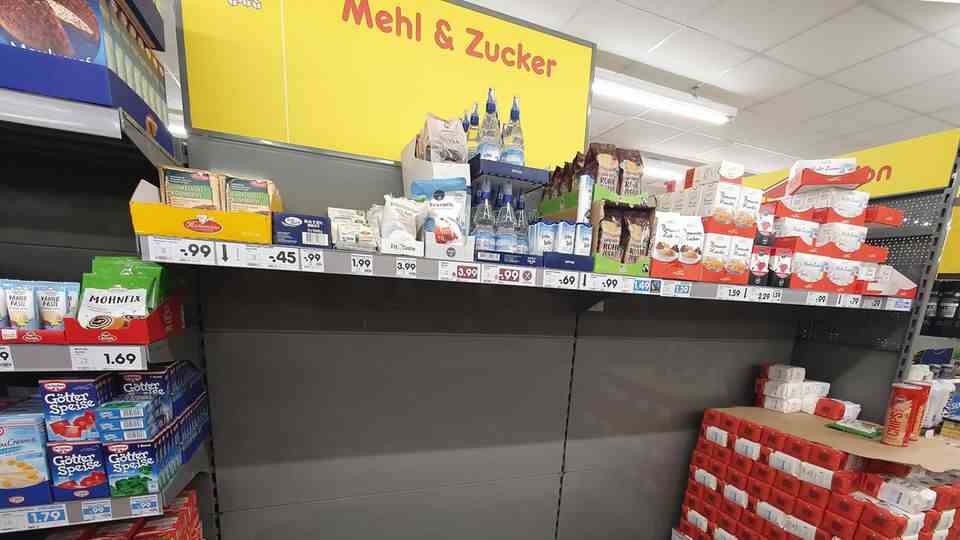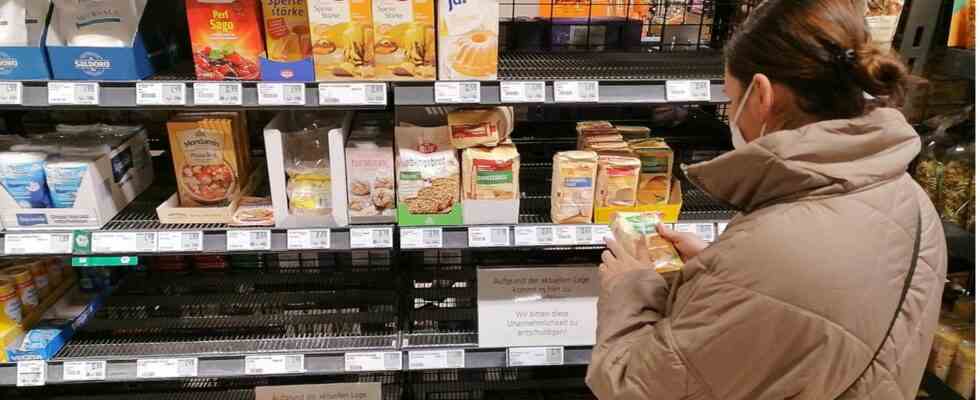Markets give the all-clear
Association of the food trade asks to refrain from buying hamsters
Supermarkets and the food trade association are calling on customers to refrain from buying hamsters
© rtn, frank bründel / Picture Alliance
There are first reports of gaps on the shelves on social media – especially for cooking oil. However, the retail chains see no reason to build up additional stocks and advise against buying hamsters.
The Federal Association of the German Food Trade (BVLH) has appealed to people in Germany to refrain from buying hamsters. “Please behave in solidarity and only buy what you need immediately,” said BVLH spokesman Christian Böttcher on Tuesday. The editorial network Germany had previously reported about it.
Supermarkets see no reason to buy hamsters
There had been repeated reports on social media about bottlenecks in cooking oil and flour in individual shops, as well as reports of volume restrictions on sales in some markets. The Association of the Oilseed Processing Industry in Germany (Ovid) had warned that sunflower oil in the Federal Republic could become scarce in a few weeks because of the Ukraine war. However, consumers could easily switch to other edible oils such as rapeseed oil.
In a survey by the German Press Agency, the retail chains tried to dispel fears of delivery bottlenecks. Germany’s largest grocer, Edeka, said: “There is still no reason to create additional stocks.” In close cooperation with its suppliers, Edeka can ensure an adequate supply of all everyday products.

Germany is hoarding again – this time oil and flour
© Fleig / Eibner-Pressefoto / Picture Alliance
In individual cases, there could be short-term delivery bottlenecks for certain products. This applies in particular to edible oils, some of which also come from the Ukraine. But customers could switch to alternatives. Depending on the situation on site, Edeka merchants called for only buying quantities of certain items that are customary in households.
Customers should buy normal household quantities
The competitor Rewe also appealed to buy products only in normal household quantities. “The production quantities and delivery logistics of the entire food chain in retail are only geared towards sales of this magnitude,” emphasized the retail giant.
The discounter Aldi Süd announced that it was observing increased demand for some product groups. It could be the case that individual items are temporarily out of stock. “In the event of larger inquiries, we reserve the right, as always, to temporarily limit the delivery quantity per customer.”
Lidl emphasized: “The supply of goods in the branches of our trading divisions is fundamentally guaranteed. Delays in delivery can only occur for individual products.” But there are enough alternatives available. BVLH spokesman Böttcher said it would be right for retail chains to limit the sale of products to normal household quantities when stocks are low.



